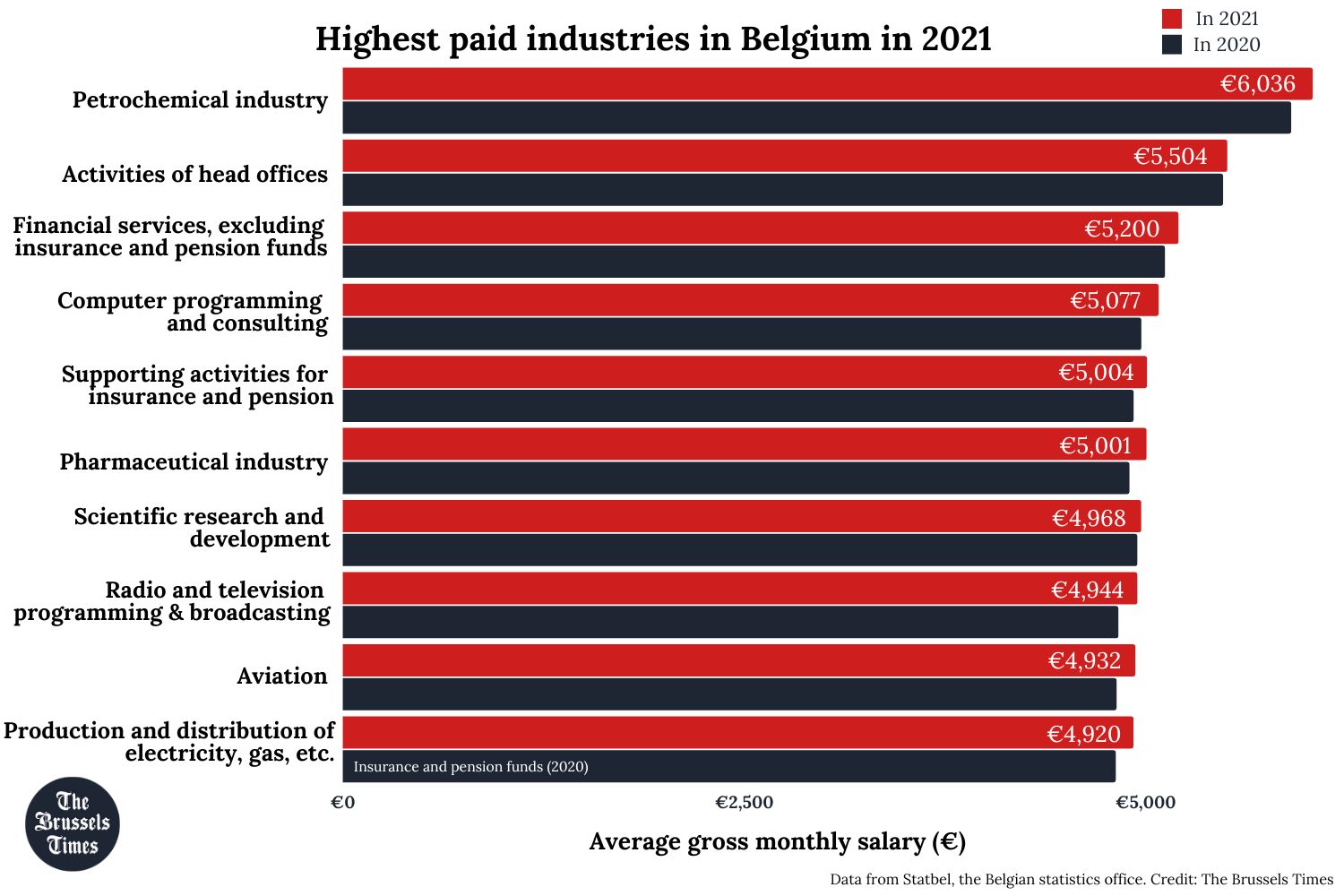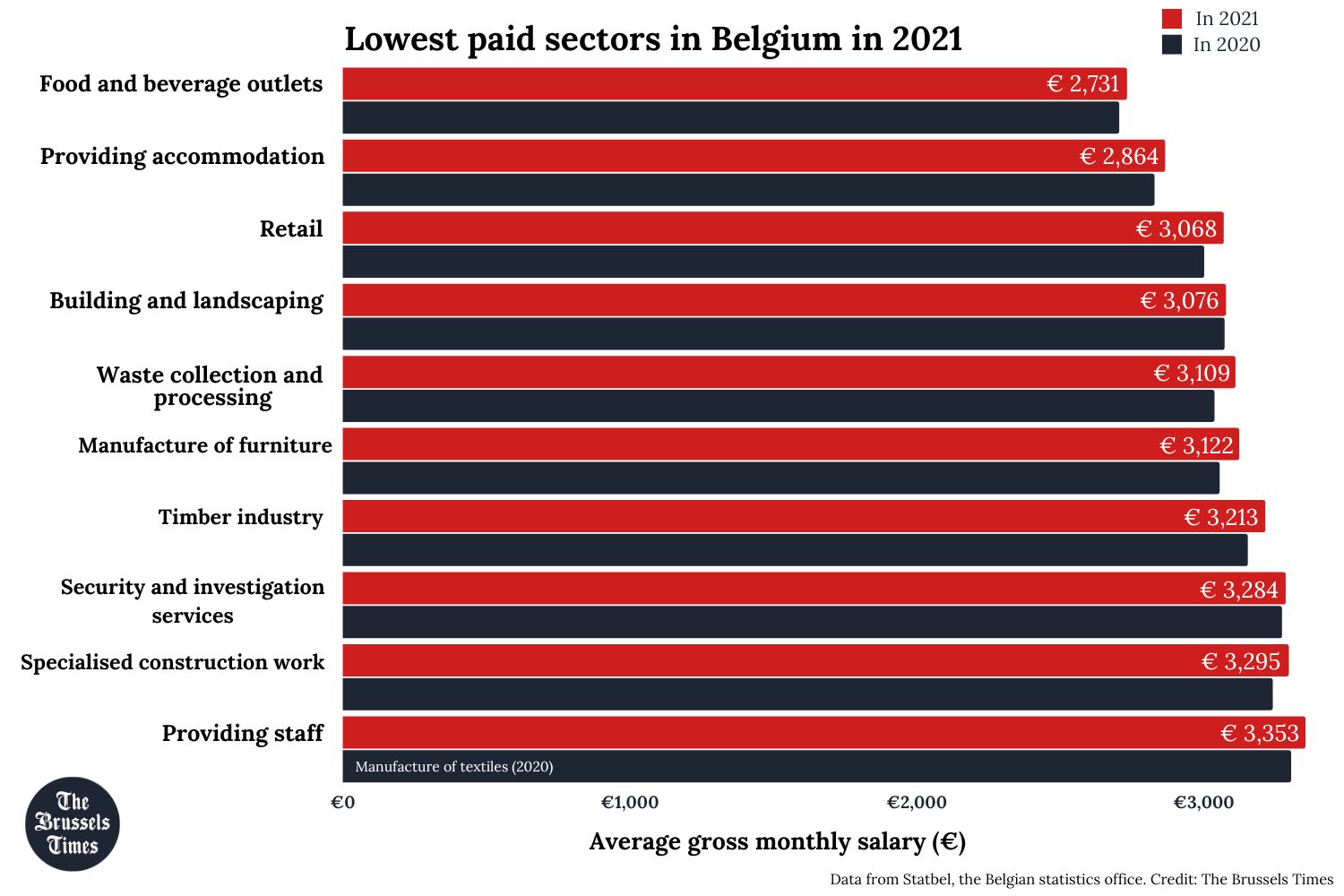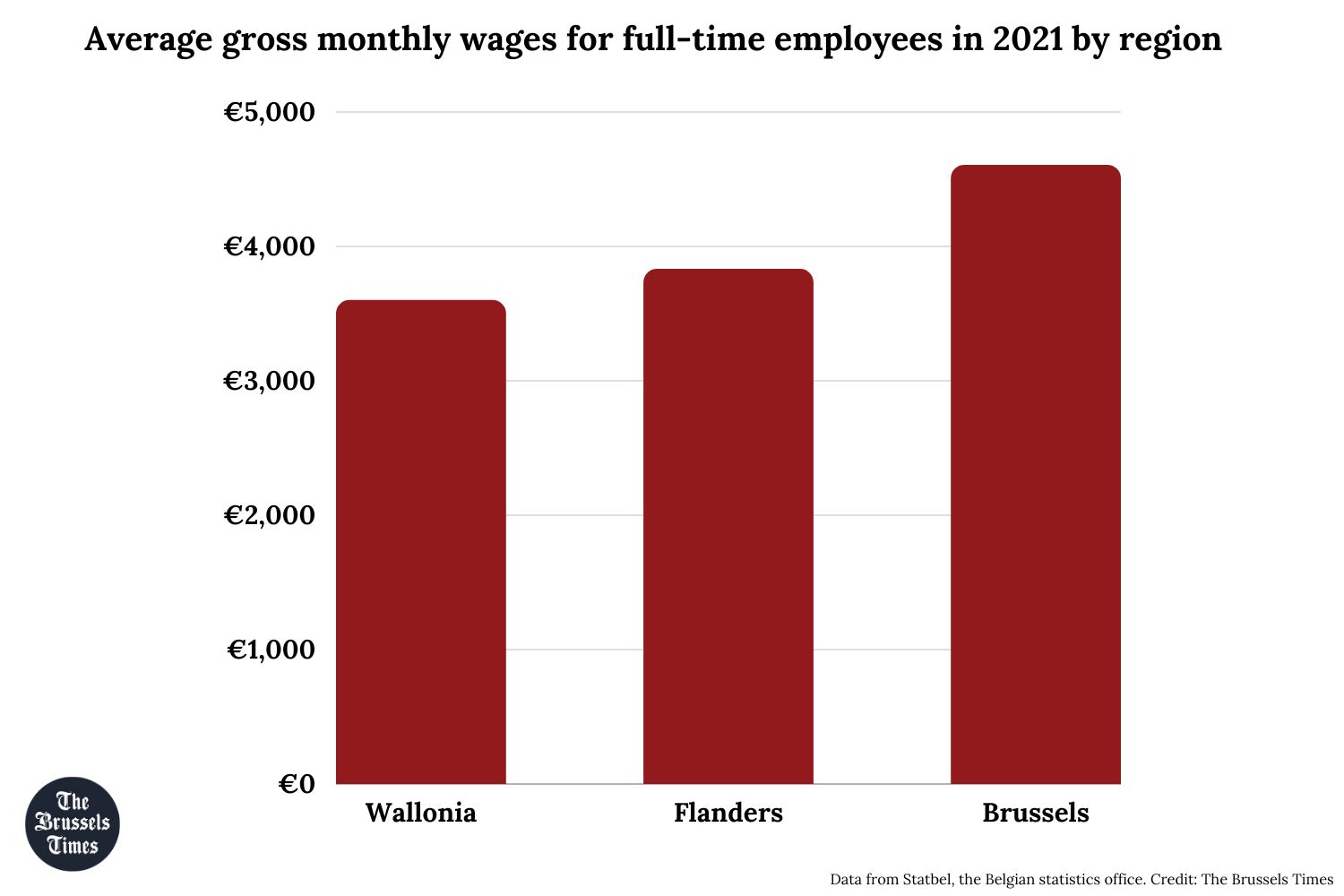Unveil the secrets behind Belgium's earning landscape;
✔ Positions within the production or distribution of energy are climbing the salary ladder fast
✔ Directors of large companies lead the earning chart with an average gross income of around €10,788 per month
✔ Holding a Master’s degree or being over 40 drastically impacts earnings
Belgium's lowest and highest paying sectors revealed

New figures from Belgium's statistics office Statbel reveal that the country's highest-paid employees work in the petrochemical industry while those in the hospitality industry are paid the least.
Based on a survey of more than 125,000 employees, Statbel's figures show that the median salary in Belgium is €3,507 gross per month.
Furthermore, the country's top 10% of earners receive over €5,922 gross per month while the bottom 10% earn less than €2,303.
Sectors such as the petrochemical industry and financial services remain at the top of the salary leaderboard. The top ten highest-paid industries in 2021 remain largely the same as in 2020, with slight fluctuations. Notably, 2021 saw industries related to the production and distribution of electricity, gas, steam and cooled air climb the salary ladder, pushing down the insurance and pension fund industry.
The highest-paying roles in 2021 were directors of large companies, who on average grossed around €10,788 per month. They were followed by managers in the field of information and communication technology (ICT) and in the field of business services and administration, at €8,050 and €7,869 respectively.
The less fortunate
The lowest-paid sectors in Belgium in 2021 closely resemble findings from 2021. Among the professions with the lowest salaries were woodworkers, waste collectors, and those working in retail outlets.
Waiters and bartenders were again the lowest-paid in Belgium, grossing an average of €2,475 per month. Hairdressers and beauticians, as well as domestic helpers and cleaners, complete the bottom three lowest-paying jobs in Belgium at €2,476 and €2,539, respectively.
Regional differences
Employees in the Brussels-Capital Region earn more than people in Flanders and Wallonia, with the average monthly wage at €4,604 – 18% above the national figure. Employees working in the Flemish region earn an average wage of €3,830 and those working in Wallonia earn €3,598 on average.
The figures also revealed that "further study offers a good guarantee of a high salary", with employees holding a Master's degree earning around 47% more than the Belgian average, while those who have not completed higher education generally fall below the average.
As well as the level of education, age has a sizeable impact on how much an employee earns: employees under 40 years old tend to earn less than the national average; over-40s generally earn above the average.
However, these trends are disproportionally true for white-collar workers as opposed to blue-collar workers – among whom the wage difference with age is minimal.



